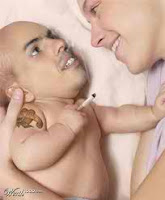Aspergers Children and Pica
Question I'm curious about messy eating and chewing on stuff ...pencils, toys, paper, wood ...you name it, he'll put it in his mouth. Answer Eating non-food items is referred to as pica. These items may include, but are not limited to dirt, paint chips, coffee grounds, hair, paper, sand, and cigarettes. For a true diagnosis of pica, the child should be craving and eating these things for at least a month. Although common in infants and toddlers, most children outgrow pica by the time they are about three years old. Pica is also more common with other disorders, such as autism, and other developmental disabilities. 10 to 20% of children may suffer from pica at some point during childhood. Pica is also common during pregnancy. Though, the specific cause of pica is unknown, there are a lot of theories prevalent trying to explain its cause. Most commonly it is suspected that emotional disturbance and deficiencies of iron or zinc may lead to this condition (H

